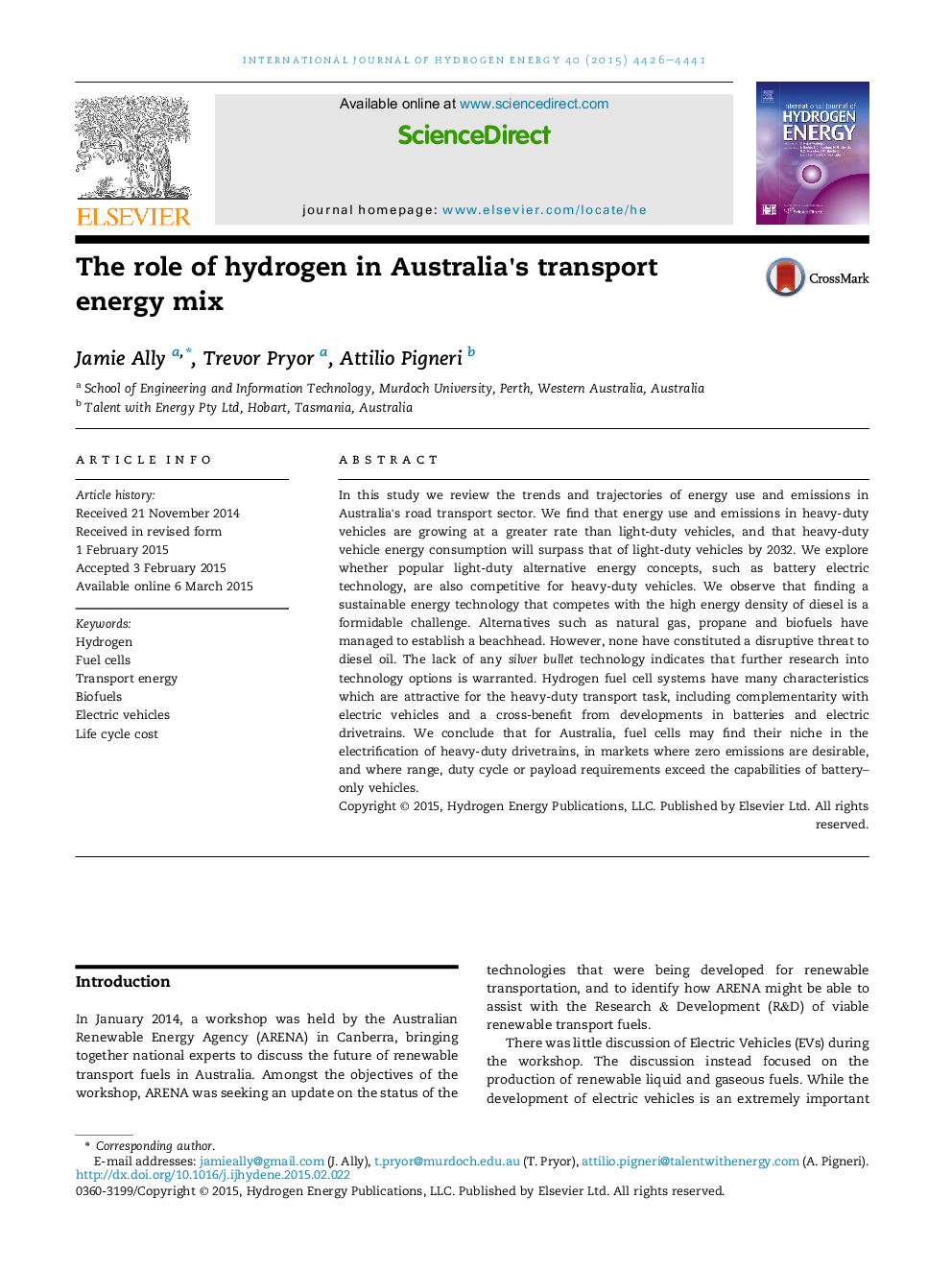| Article ID | Journal | Published Year | Pages | File Type |
|---|---|---|---|---|
| 7715781 | International Journal of Hydrogen Energy | 2015 | 16 Pages |
Abstract
In this study we review the trends and trajectories of energy use and emissions in Australia's road transport sector. We find that energy use and emissions in heavy-duty vehicles are growing at a greater rate than light-duty vehicles, and that heavy-duty vehicle energy consumption will surpass that of light-duty vehicles by 2032. We explore whether popular light-duty alternative energy concepts, such as battery electric technology, are also competitive for heavy-duty vehicles. We observe that finding a sustainable energy technology that competes with the high energy density of diesel is a formidable challenge. Alternatives such as natural gas, propane and biofuels have managed to establish a beachhead. However, none have constituted a disruptive threat to diesel oil. The lack of any silver bullet technology indicates that further research into technology options is warranted. Hydrogen fuel cell systems have many characteristics which are attractive for the heavy-duty transport task, including complementarity with electric vehicles and a cross-benefit from developments in batteries and electric drivetrains. We conclude that for Australia, fuel cells may find their niche in the electrification of heavy-duty drivetrains, in markets where zero emissions are desirable, and where range, duty cycle or payload requirements exceed the capabilities of battery--only vehicles.
Related Topics
Physical Sciences and Engineering
Chemistry
Electrochemistry
Authors
Jamie Ally, Trevor Pryor, Attilio Pigneri,
